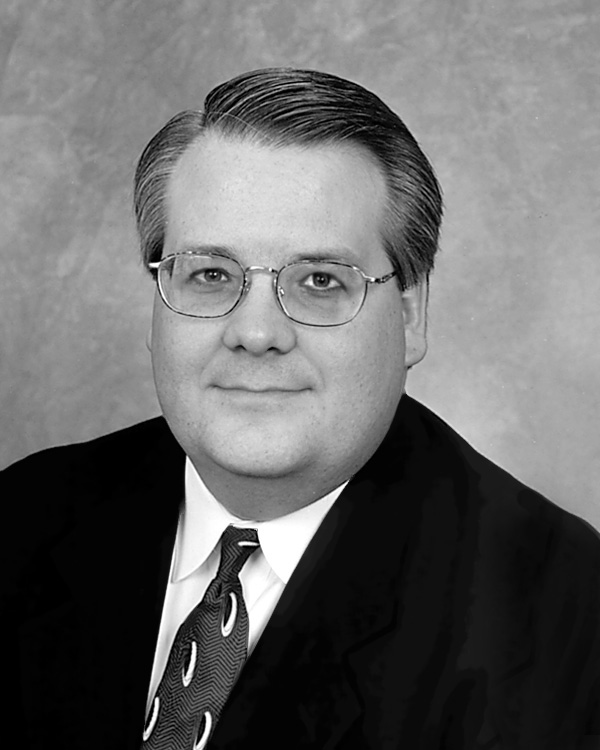
JACKSONVILLE, Fla. (BP)–Anyone who may have doubted the necessity of the controversy in the Southern Baptist Convention during the 1980s and 1990s need only look to a new commentary series published by Smyth & Helwys, a publishing house that partners with the Cooperative Baptist Fellowship in opposition to the conservative theology now undergirding the Southern Baptist Convention.
A recent Associated Press story by veteran religion writer Richard Ostling provides a glimpse of what the two-decade-long Baptist battle was about and why it’s good that conservatives won.
The recently published volume on 1 and 2 Kings written by Walter Brueggemann is the first of an anticipated 31-volume Smyth & Helwys Bible Commentary Series. Ostling reports that Brueggemann, professor at Columbia Theological Seminary in Decatur, Ga., rejects the historical accuracy of some portions of 1 and 2 Kings.
Brueggemann calls the description of the Israel’s territorial reach under King Solomon (1 Kings 4:21) an “imaginative expansion.” Ostling adds, “In [Brueggemann’s] view, the details are ‘not consistently reliable,’ the material is often ‘confusing and unclear,’ and the books don’t always confirm what is known from the limited sources we have outside the Bible.” Brueggemann writes, “… to term this literature ‘history’ in any modern sense of an accurate ‘factual’ account of that past is widely recognized to be deeply problematic.”
Deeply problematic — that’s a good way to describe Smyth & Helwys’ decision to publish a writer who rejects the historicity of the Bible. Problematic, but not surprising.
Smyth & Helwys, named for two early English Baptist leaders, was founded in Macon, Ga., in 1990 as an alternative to the conservative-controlled Baptist Sunday School Board (since renamed, LifeWay Christian Resources of the Southern Baptist Convention).
The launch of Smyth & Helwys’ new commentary series brings Baptists full circle in the SBC controversy. Literature was one of the critical points of disagreement among conservatives and moderates that ignited the controversy.
A generation ago, the Baptist battle started in 1961 with the BSSB’s publication of Ralph Elliott’s “The Message of Genesis.” In the book, the Midwestern Baptist Theological Seminary professor rejected the historicity of Adam and Eve, Noah’s flood and God’s command to Abraham to sacrifice Isaac.
A controversy quickly ensued resulting in unanimous adoption of a motion offered by influential Houston pastor K. Owen White at the 1962 Southern Baptist Convention. The motion reaffirmed “faith in the entire Bible as the authoritative, authentic, infallible Word of God.”
SBC leaders, including Herschel Hobbs, decided a restatement of Baptist convictions was necessary to satisfy the concerns of conservatives, resulting in the adoption of the 1963 edition of the Baptist Faith and Message.
Nevertheless, the same concerns emerged again in 1969 with the publication of volume 1 of The Broadman Bible Commentary. G. Henton Davies, author of the commentary on Genesis, was criticized on similar grounds as Elliott. Ultimately, the volume was removed and rewritten at the direction of the 1970 Southern Baptist Convention.
Although conservatives won the votes on the motions related to the Elliott and Broadman volumes, it became clear to them that systematic changes in denominational leadership would be needed to correct the direction of the SBC. In 1979, conservatives elected Adrian Rogers, pastor of Bellevue Baptist Church in Memphis, as the first in what became an unbroken string of presidents who affirmed without hesitation the historical validity and inerrancy of Scripture.
While leaders of both sides of the controversy admit that mistakes were made and regrets exist, the controversy wrought a new SBC. LifeWay Christian Resources and the seminaries have made clear their acceptance of the Bible’s accuracy. The writers for LifeWay’s New American Commentary series commissioned in 1987 to replace The Broadman Bible Commentary include only scholars who affirm inerrancy. And, the 2000 edition of the Baptist Faith and Message further clarifies the matter by asserting that “all Scripture is totally true and trustworthy.”
What about Elliott? In 1992, he published his own account of the controversy surrounding The Message of Genesis. Elliott has blistering criticism for all sides: conservatives, for their wrong-headed views; moderates, for their lack of integrity in defending his views which he writes were held by many faculty members at SBC seminaries. Tragically, as Russ Bush and Tom Nettles demonstrate (“Baptists and the Bible,” revised 1999), Elliott moved on to reject the deity of Christ and accepted the heresy of universalism.
Mourning the theological pilgrimage of Elliott, Bush and Nettles write: “Those who seek to maintain the doctrine of biblical inerrancy are not surrendering historic Baptist freedoms or rejecting religious liberty. Rather, they are holding firmly to that indispensable core of truth that supports those freedoms and from which such liberty derives. In Scripture and Scripture alone has God granted the grace of a faith once delivered to the saints.”
For Smyth & Helwys and those in the liberal academy, the historicity of the Bible may be rejected, but the vast majority of Southern Baptists eagerly embrace the total historical validity of the Bible. Furthermore, as the SBC controversy made clear, we insist that those who teach in our seminaries and publish our literature hold the Bible in the same high regard.
The SBC reformation is a blessing for which Southern Baptists should be thankful to God. But as the Brueggemann volume demonstrates, we must remain vigilant in our defense of the total truthfulness of the Bible.
–30-
Smith is executive editor of the Florida Baptist Witness.
















